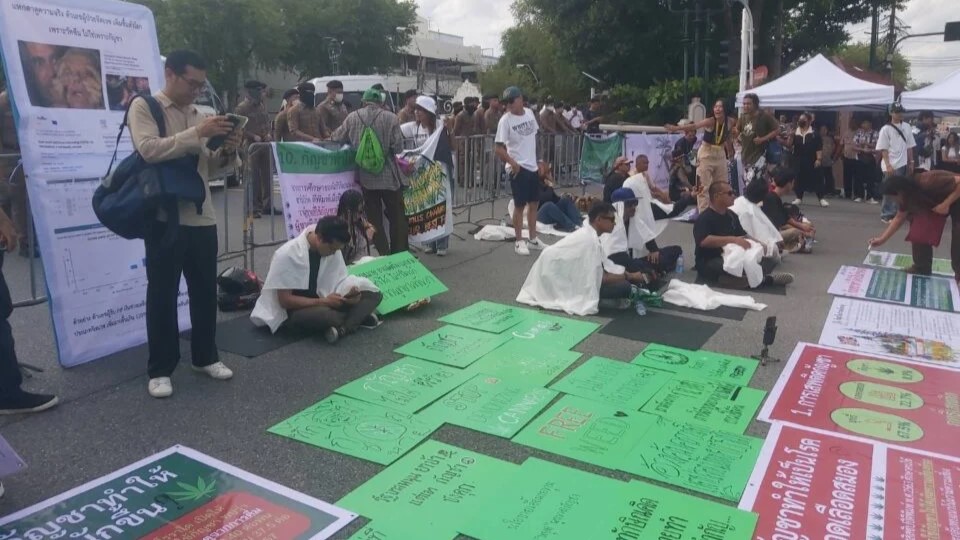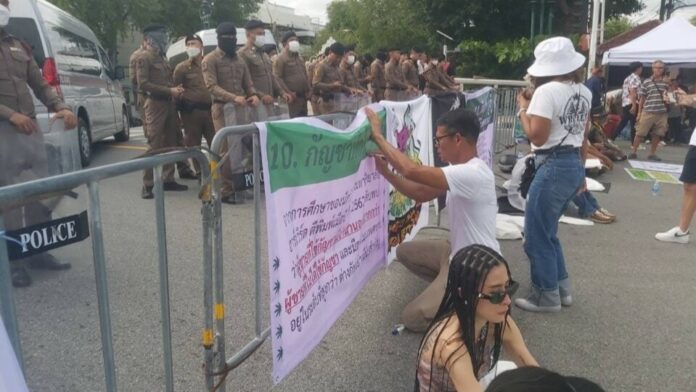Pro-cannabis activists in Thailand marked the two-year anniversary of cannabis legalization with a sit-in protest at the Thai Government House, opposing any move towards recriminalization. Led by Mr. Prasitchai Nunual, the secretary-general of the network for Shaping the Future of Thai Cannabis, and joined by over 300 individuals from various advocacy groups, the protest commenced on June 9th, 2024, at 1 PM in front of the UN Office.
Their primary demand is for the government to employ scientific methodologies in determining the future of cannabis regulation and to resist reclassifying it as a narcotic illegal drug. This protest coincides with the significant milestone of the second anniversary of cannabis legalization in Thailand.
The demonstrators, marching towards the United Nations Office on Ratchadamnoen Avenue, have declared their intention to file a lawsuit with the Administrative Court if the government proceeds with reclassifying cannabis as an illegal substance. Prasitchai stressed that their movement seeks to protect the rights of the public regarding cannabis usage. He emphasized the necessity of regulating cannabis through distinct legislation rather than restrictive narcotics laws, which would limit access and benefit only a privileged few.

The protestors are committed to their sit-in demonstration until the government passes the Cannabis Control Act. They caution against the potential consequences of reclassification, such as increased prices controlled by pharmaceutical companies and a surge in underground cannabis activity, leading to societal problems like corruption and prostitution.
Advocates argue for the implementation of targeted legislation to regulate cannabis systematically and establish flexible consumer protection measures. They criticize the government’s reluctance to enact such legislation, attributing it to a reluctance to grant rights to the people and prevent monopolies.
Prasitchai advocates for a scientific approach to determine cannabis regulation, proposing a comparative study of its effects alongside alcohol and tobacco. If scientific research demonstrates that cannabis provides more benefits than harm, it should remain regulated under specific legislation. However, Assoc. Prof. Dr. Thawatchai Kamoltham, the Chairperson of the Medical Cannabis and Herbal Medicine Program at Suan Sunandha Rajabhat University, expressed concerns about reclassification. He warned against complicating access to medical cannabis services, disrupting investments, and causing job losses and a resurgence of the black market.
Dr. Thawatchai proposed three recommendations: maintaining cannabis’s legal status, enacting a Cannabis and Hemp Act akin to existing tobacco and alcohol control laws, and promoting education for doctors and the public to develop expertise in medical cannabis.
Credit: Pattaya News




